Checking Your RV Water Heater
A functioning water heater is a key component of any RV, providing hot water for showers, dishes, and other daily needs. To ensure your water heater operates efficiently and safely, regular checks and maintenance are essential. Here’s a guide to help you inspect and maintain your RV water heater before hitting the road.
On-The-Go Mobile RV Repair
10/24/20249 min read
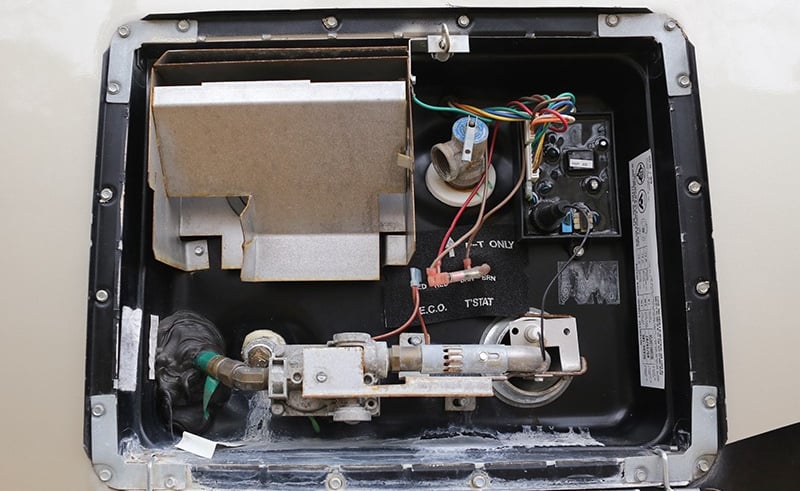

Introduction to RV Water Heaters
In the context of recreational vehicles (RVs), having a reliable water heater is crucial for ensuring comfort and convenience during travels. RV water heaters serve multiple essential purposes, providing hot water for everyday needs such as showers, cleaning, and cooking. A fully functional hot water system enhances the overall camping experience, allowing users to enjoy the luxuries of home even in the great outdoors.
The importance of regular maintenance for RV water heaters cannot be overstated. Proper care ensures the water heater operates efficiently, which translates into saved energy and reduced operational costs. Furthermore, maintenance plays a significant role in preventing potential hazards, such as leaks or malfunctions that could lead to more extensive damage, costly repairs, or even unsafe situations while on the road. Regular inspections and timely maintenance activities can help RV owners identify minor issues before they escalate, thereby prolonging the lifespan of their water heaters.
RV water heaters typically come in two varieties: propane-fueled and electric. Each type has its advantages and considerations regarding installation and functionality. Propane models are popular for their efficiency and ability to produce hot water quickly, making them an excellent choice for users looking for rapid heating capabilities. Electric water heaters, on the other hand, may require a power source but offer a different set of operational benefits, such as easier temperature control. Understanding the unique features of each type can help RV owners choose the right water heater for their specific needs and usage patterns.
Overall, the function and maintenance of RV water heaters are integral to the satisfaction and well-being of travelers. Ensuring these systems are well-maintained not only contributes to a more enjoyable experience but also promotes safety and reliability during any adventure on the road.
Types of RV Water Heaters
When considering the various types of RV water heaters, it is essential to understand the different mechanisms they employ, as well as their respective advantages and disadvantages. The primary types of water heaters found in recreational vehicles include tankless, storage tank, and heat pump models.
Tankless water heaters are becoming increasingly popular due to their energy efficiency and on-demand capabilities. Unlike conventional models that store hot water, tankless heaters heat water directly as it passes through the unit. This design ensures that hot water is available instantly whenever needed, thus eliminating the wait time associated with traditional systems. However, one potential drawback is their limited flow rate, which may not be sufficient for multiple simultaneous demands, especially in larger RVs.
Storage tank water heaters are the traditional choice, which operate by holding a specific volume of hot water in an insulated tank. This type of heater is straightforward in design and generally provides a consistent supply of hot water for various tasks. Nonetheless, they require a substantial amount of energy to maintain the water temperature, which can be inefficient, especially when RVing for extended periods in remote locations. Additionally, when the hot water is depleted, users must wait for the tank to refill and reheat.
Heat pump water heaters, while less common, offer an innovative solution by extracting heat from the surrounding air and transferring it to the water. These units are highly energy-efficient, particularly in moderate climates, but they may struggle in extremely low temperatures where air has less thermal energy. When selecting an RV water heater, it is crucial to consider factors such as space, energy source, and personal hot water needs to choose the right type for your RV lifestyle.
Signs Your RV Water Heater Needs Maintenance
Maintaining an RV water heater is crucial for ensuring that you enjoy consistent hot water during your travels. Being aware of the signs that indicate the need for maintenance can help you address issues before they escalate into more significant problems. One of the most common indicators is water temperature inconsistencies. If you find that your water heater is unable to provide a constant temperature—whether it fluctuates between too hot and lukewarm or fails to heat water altogether—this could signify underlying issues.
Another red flag to watch for is the presence of strange noises emanating from your RV water heater. Sounds such as popping, hissing, or rumbling may indicate a buildup of sediment in the tank or deteriorating heating elements. These noises often serve as a warning signal that your water heater is not functioning optimally and may require a thorough inspection or a flush to clear out any accumulated sediment.
Leaks are also a significant concern when it comes to RV water heaters. If you notice any moisture or puddling around the appliance, it is critical to investigate further. Leaks can arise from a variety of sources, including worn-out seals, faulty fittings, or cracks in the tank itself. Ignoring even minor leaks can lead to extensive damage and costly repairs, so prompt attention is warranted.
Finally, the water quality can also serve as an indicator of the need for maintenance. If you observe discoloration, a foul odor, or a strange taste in the hot water, these may be signs of contamination or deterioration within the heater. Regular maintenance checks can help detect these issues early, ensuring that you enjoy safe and reliable hot water during your RV adventures.
Essential Maintenance Tasks for Your RV Water Heater
Keeping your RV water heater in top shape is essential for its efficiency and longevity. Regular maintenance helps prevent issues and keeps everything running smoothly. One key task is to flush the tank at least once a year. Sediment can build up at the bottom, affecting performance and potentially causing corrosion. Flushing the tank involves draining the water, removing any sediment, and refilling it, which can significantly extend the lifespan of your water heater.
Additionally, it’s a good idea to check the Anode Rod every couple of years—this little hero sacrifices itself to prevent corrosion in the tank. If it’s worn down, replace it to keep your heater happy. Regularly inspecting the temperature and pressure relief valve is also crucial, as it ensures safe operation. A little maintenance goes a long way, so you can enjoy those hot showers without a hitch on your adventures!
In addition to flushing, it is important to regularly inspect connections for any signs of wear or leaks. Check the fittings, hoses, and clamps associated with the water heater. Tightening loose connections or replacing damaged parts can prevent larger issues from developing. Regular inspection not only enhances safety but also optimizes efficiency.
Checking the pressure relief valve is essential. This component regulates the internal pressure of the water heater. If the valve is malfunctioning, it can lead to dangerous pressure buildup. Testing the valve periodically involves lifting the lever to ensure that water flows freely and then allowing it to close securely. If no water flows or if it is stuck, the valve should be replaced promptly.
Lastly, RV owners should routinely replace any worn-out components, including the Anode Rods, which prevent corrosion inside the tank. Anode rods typically need replacing every one to two years, depending on your water's hardness. Neglecting this task can result in significant rust and damage to the water heater. By performing these essential maintenance tasks, RV owners can ensure that their water heater operates efficiently and remains a reliable source of hot water during their travels.
How to Safely Inspect Your RV Water Heater
Inspecting your RV water heater is a crucial maintenance step that ensures its optimal performance and longevity. To begin your inspection, it is essential to turn off both the power and gas supplies to the water heater. This step not only protects you from potential hazards, but it also allows a thorough examination without the risk of accidental activation. Locate the circuit breaker for the water heater and switch it off. If your heater operates on propane, turn off the gas supply at the tank as well.
Once the power and gas are off, you can proceed to access the water heater. Most RV water heaters are located inside a compartment accessible from outside the vehicle. Use your owner’s manual to determine how to safely open this compartment. Be cautious of any hot surfaces that may still retain heat, as safety should always be a priority during this process.
During the visual inspection, check for any signs of leaks, corrosion, or damage. Inspect the connections, pipes, and fittings for water stains which may indicate a leak. Furthermore, examine the exterior casing of the water heater for rust or pitting, as these can compromise the unit’s integrity. If applicable, check the anode rod and consider replacing it if it appears significantly corroded, as this part is crucial for protecting the water tank from rust.
Additionally, look at the burner and combustion chamber for dirt or debris that may obstruct proper function. Cleaning these areas can improve efficiency and prevent future issues. Lastly, ensure the pressure relief valve is functioning correctly; this is vital for preventing pressure build-up within the system. By following these steps, you can confidently maintain your RV water heater, ensuring it operates safely and efficiently for your travels.
Troubleshooting Common Water Heater Issues
Addressing common issues with RV water heaters can significantly enhance your camping experience. One prevalent problem is a lack of hot water, which can stem from various sources. Begin by checking the thermostat settings to ensure they are correctly set, as a simple adjustment can often solve the problem. If the settings appear accurate but the water remains cold, inspect the power source, whether it operates on propane or electricity. Ensure that your propane supply is adequate or check the circuit breaker for an electrical system. For electric heaters, a blown fuse might also be at fault, requiring replacement.
Another frequent concern is water leaks. Leaking water heaters can not only cause discomfort but can also lead to more significant damage if left unaddressed. To troubleshoot this issue, first identify the source of the leak. Common areas to inspect include the drain valve, inlet, and outlet connections. Tightening any loose fittings may resolve the leak. If the leak persists, it could be indicative of a more serious underlying issue, such as corrosion within the tank. In such cases, replacement might be necessary.
Strange odors emanating from your RV water heater can also be troubling. Often, foul smells are a result of bacteria buildup within the tank, particularly if the water heater has not been used for an extended period. Performing regular maintenance, such as flushing the tank and replacing the anode rod, can help eliminate such odors. Additionally, utilizing a water treatment like hydrogen peroxide can be effective in managing unpleasant smells. Regularly inspecting and maintaining your RV water heater is crucial not only to resolve these issues, but to prolong the lifespan of the unit and ensure a consistent supply of hot water. By following these troubleshooting tips, RV owners can address common water heater problems effectively.
Preparing Your RV Water Heater for Travel
Preparing your RV water heater for travel is a crucial step in ensuring a smooth and safe journey. Proper maintenance and pre-trip preparations will not only enhance your overall RV experience but also prolong the lifespan of your water heater. One of the first measures to consider is winterizing your water heater, particularly if you plan to travel in colder climates. This involves draining the tank and using non-toxic antifreeze to protect the system from freezing temperatures. Always consult your owner’s manual for specific winterization instructions tailored to your RV model.
Draining the tank is another essential procedure that should not be overlooked. Before setting off, ensure that your water heater is empty to avoid the risks associated with carrying unnecessary weight and to prevent rust formation inside the tank. Start by turning off the power to the water heater and allowing it to cool down, then locate the drain valve, attach a hose, and let the water flow out completely. After draining, inspect the anode rod and replace it if necessary, as this component plays a key role in preventing corrosion.
Moreover, conducting a thorough inspection of the entire water heater system is vital. Check all connections, fittings, and hoses for any signs of wear or leaks. Ensuring that the valves operate correctly and confirming the pressure relief valve is functional is equally important. By performing these checks, you can avoid potential malfunctions during your travels. Finally, don’t forget to refill the tank before use and double-check that the heater is operational. Proper preparation is your assurance of a safe and enjoyable adventure on the road.
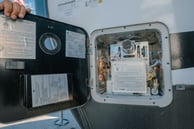

"RV water heater: turning cold showers into hot debates about who forgot to light the pilot!"
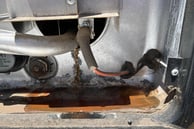

"Check your RV water heater often—because nobody wants a surprise cold shower in the great outdoors!"
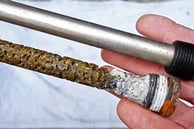

"A bad anode rod is like a bad hair day—no one wants to deal with the mess it makes!"
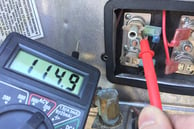

"Regular inspection of your RV water heater is essential to ensure safe operation and prevent costly repairs, allowing you to enjoy your travels with peace of mind."
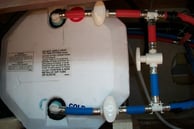

"A water leak: the only time your RV can turn into a swimming pool without anyone asking for it!"
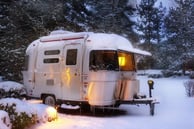

"Water heaters: turning 'cold feet' into 'hot water' since the dawn of camping!"

